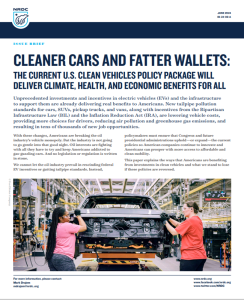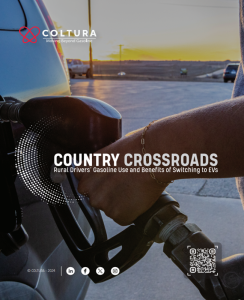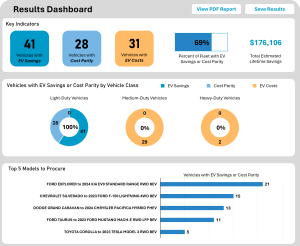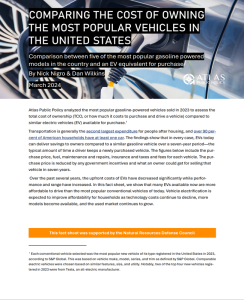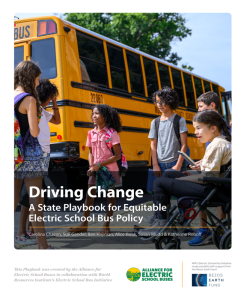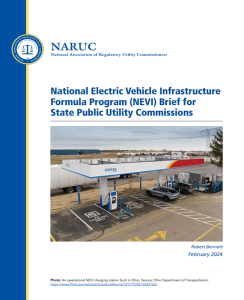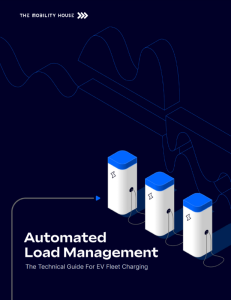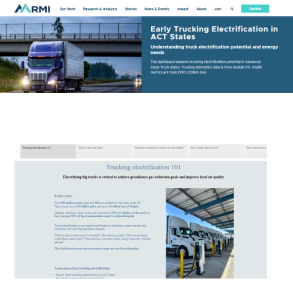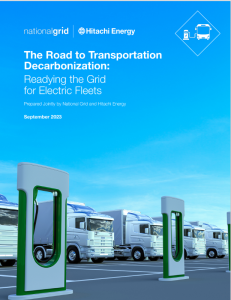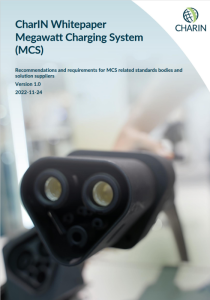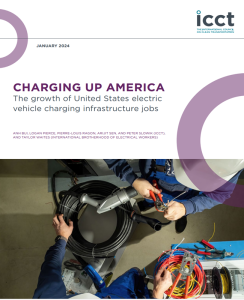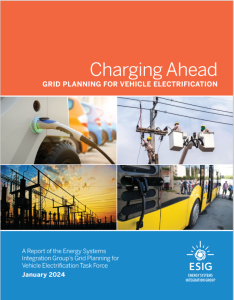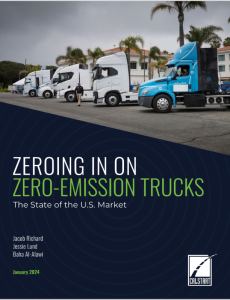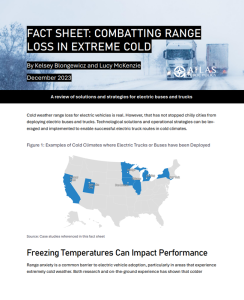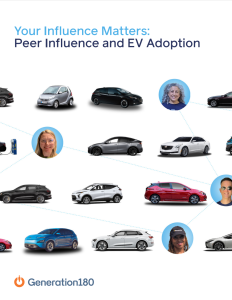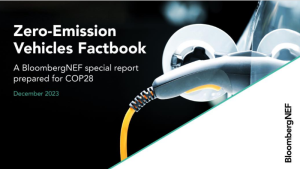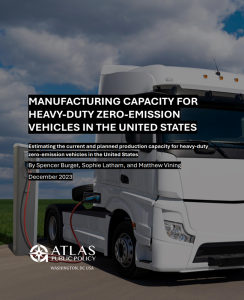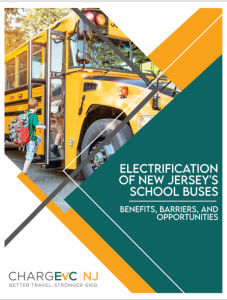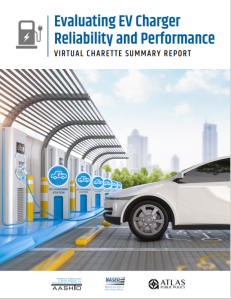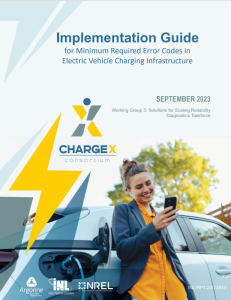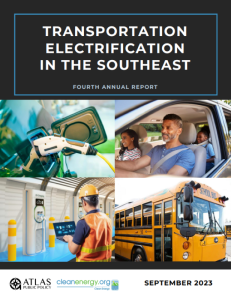We’ve assembled a comprehensive library of web-related resources related to the EV market, including reports, websites, and tools. New content is constantly hitting the web. To add a resource, simply fill out this form and we’ll add it to the library!
Filter by Date
Filter Selections:
June 2024
NRDC's latest paper explains the ways that Americans are benefiting from investments in clean vehicles and what we stand to lose if these policies are reversed.
May 2024
Coltura’s latest report looks at gasoline use in rural America and how we can supercharge the environmental and economic benefits of EV deployment by steering EVs to households that use more gasoline.
April 2024
Dashboard for Rapid Vehicle Electrification, or DRVE, is a powerful tool that equips users with decision-relevant information on the financial viability and environmental impact of light-, medium-, and heavy-duty vehicle fleet procurements across an entire fleet.
March 2024
This guide shares a recommended communication platform grounded in affordability, practicality, pollution reduction, and consumer choice. It provides helpful tips on what to say (and what not to say) when striving to connect with real people on the topic of clean vehicles.
March 2024
A new analysis by Atlas Public Policy compares the costs of owning the most popular gasoline vehicles sold in the United States in 2023 with electric vehicle alternatives.
February 2024
Driving Change: A State Playbook for Equitable Electric School Bus Policy presents a range of approaches and resources, recognizing the vital role state policymakers play and the need for a coordinated effort both within states and with federal and local decision makers to ensure an effective transition to clean electric school buses.
February 2024
This report provides essential information on NEVI related to state implementation and utility responsibilities along with considerations and potential roles for PUCs.
January 2024
The report outlines the challenges of interconnecting charging infrastructure for trucks and buses at scale, and details ten recommendations for lawmakers, utility regulators, and utilities to ensure distribution grids are prepared for this new load.
January 2024
This paper describes the value of ALM systems for electric fleets, how ALM compares to alternative options, how it works, and suggests a framework of how to plan and permit a system with your local authorities.
January 2024
This dashboard explores trucking electrification potential in Advanced Clean Truck states. Trucking telematics data is from Geotab ITS. Health metrics are from EPA's COBRA tool.
January 2024
The study leads to insights and recommendations to help utilities, policymakers, and the transportation industry decarbonize fleet vehicles.
January 2024
This white paper gives an overview of several technical and non-technical aspects of the Megawatt Charging System (MCS), as discussed within the CharIN Subgroup since 2018. As a descriptive summary, it provides the achievements in preparing general design aspects of an MCS. For further development this document also provides recommended MCS specifications for adoption by Standards Development Organizations (SDOs).
January 2024
This paper projects the number of jobs that will be needed to expand electric light-duty vehicle (LDV) and medium- and heavy-duty vehicle (MHDV) charging infrastructure to meet annual charging needs through 2032. It quantifies the charging needs of a growing electric vehicle fleet that is aligned with newly proposed federal standards, and then projects the number of new jobs needed to deploy the necessary infrastructure.
January 2024
Coltura's new report provides new gasoline consumption data showing how to cut vehicle emissions more quickly, efficiently, and equitably by prioritizing the light duty vehicle drivers in the top 10% for gasoline use (“Superusers”) for the switch to EVs.
January 2024
This report provides a holistic, national-level examination of transportation electrification challenges that directly impact integrated distribution planning, and outlines how coordinated planning that addresses the largest grid challenges can help instill confidence in long-term plans.
January 2024
This analysis offers insights into key trends driving growth in this market, as well as opportunities to further accelerate this growth that can help inform policymakers, original equipment manufacturers, and fleet owners.
January 2024
Cold weather range loss for electric vehicles is real. However, that has not stopped chilly cities from deploying electric buses and trucks. To counteract cold weather range loss, fleets have taken advantage of technological advances in electric trucks and buses and have employed mitigation and adaptation strategies. This fact sheet discuses on-the-ground success of pre-heating the interior and battery, strategic planning and adaptation, more efficient heating technology, and longer ranges with newer vehicles.
December 2023
Whether it’s called peer pressure, social contagion, or the neighborhood effect, the phenomenon is clear: as social beings, humans have the ability to influence one another by their actions. In this report, Generation180 explores how peer influence is playing a key role in accelerating the adoption of electric vehicles (EVs) across the United States.
December 2023
Many of the indicators in this report are pointing in the right direction, and EV adoption is growing globally. Yet ambition from both governments and automakers has stalled, with no new significant ZEV commitments made or targets set in 2023.
December 2023
Atlas Public Policy assessed the current and planned production capacity for class 4-8 heavy-duty zero-emission vehicles in the United States based on publicly available information from vehicle manufacturers and news sources. The report discusses manufacturers plans to increase manufacturing capacity for heavy-duty zero-emission vehicles through building new facilities, expanding existing facilities, and the recalibration of production at facilities that are capable of producing both internal combustion and zero-emission vehicles side-by-side.
November 2023
This study explores the current landscape of school buses in New Jersey, estimates the economic and environmental impacts that come with full school bus electrification, and identifies the most crucial barriers to school bus electrification in the State, identifying specific pathways to address those issues and recommendations to make adoption feasible.
October 2023
In an effort to identify processes for measuring, verifying, and evaluating charger reliability and performance, the National Association of State Energy Officials (NASEO) and the American Association of State Highway and Transportation Officials (AASHTO) convened an online Evaluating EV Charger Reliability and Performance Charrette on June 13, 2023. The charette was facilitated by Atlas Public Policy staff, and invited participants included a balanced representation of stakeholders from the EV charging industry, state and federal government agencies, including State Energy Offices and State Departments of Transportation, utilities, and consulting firms.
September 2023
The objective of this report is to provide a guide that accelerates the MREC adoption proposed by the ChargeX consortium, ensuring consistent error reporting, interpretation, and diagnostics across the North American EV charging landscape. This guide builds upon the MRECs report to improve EV charging reliability by streamlining error reporting and transmission processes via OCPP.
September 2023
Since September 2020, Atlas Public Policy (Atlas) has partnered with the Southern Alliance for Clean Energy (SACE) to publish the annual Transportation Electrification in the Southeast report. This report benchmarks progress on transportation electrification in six states in the Southeast: Alabama, Florida, Georgia, North Carolina, South Carolina, and Tennessee. This is our fourth annual report and provides an update on progress from July 2022 through June 2023.
